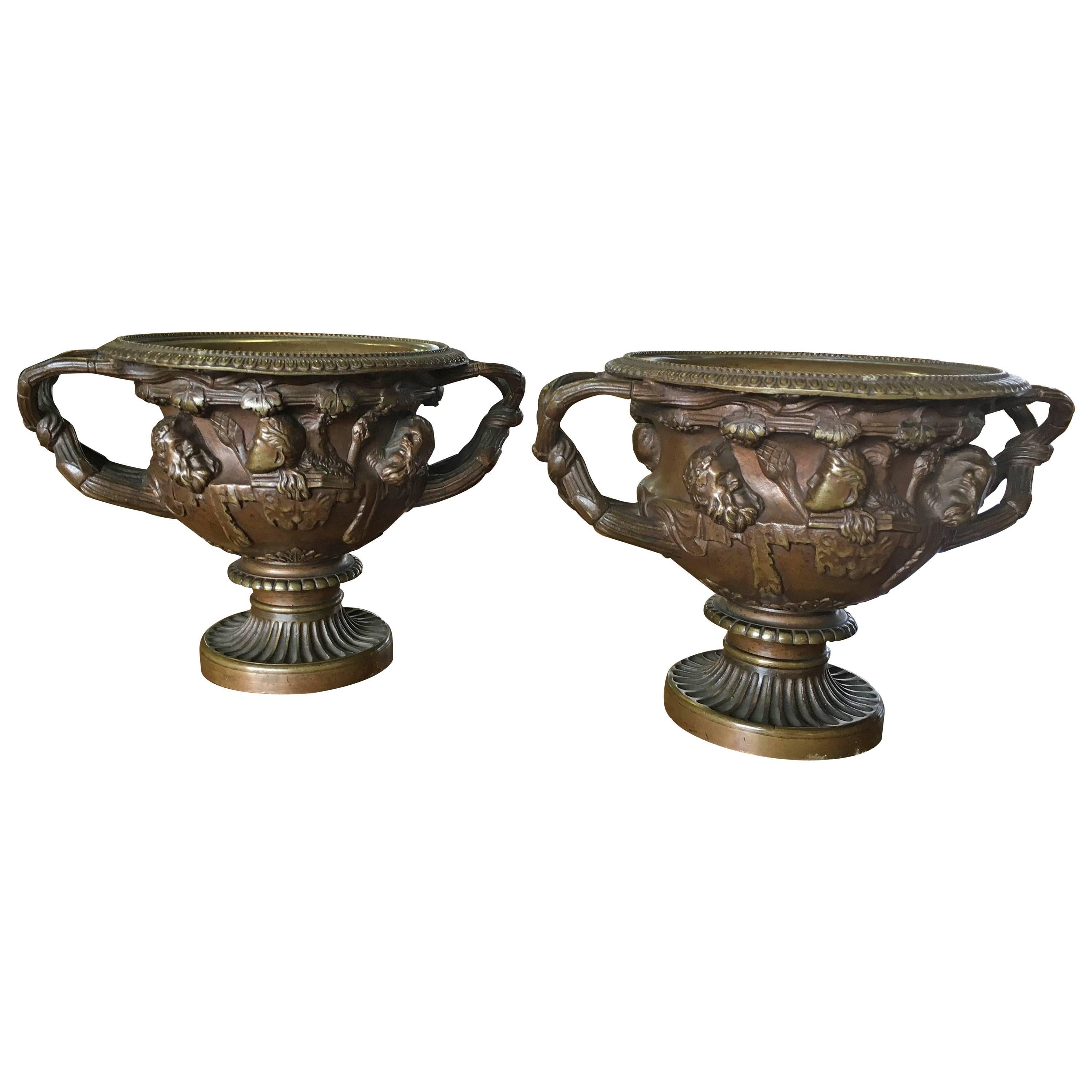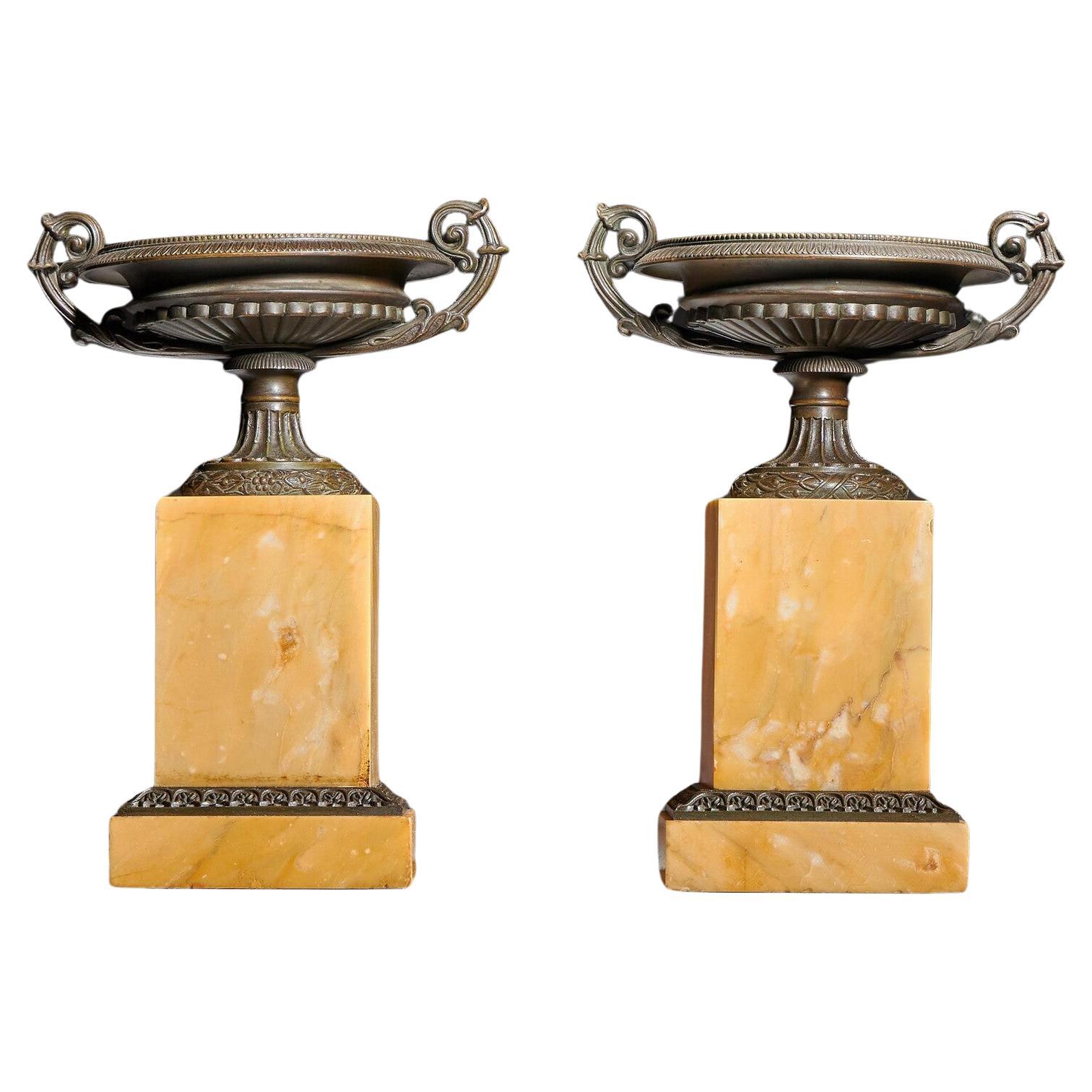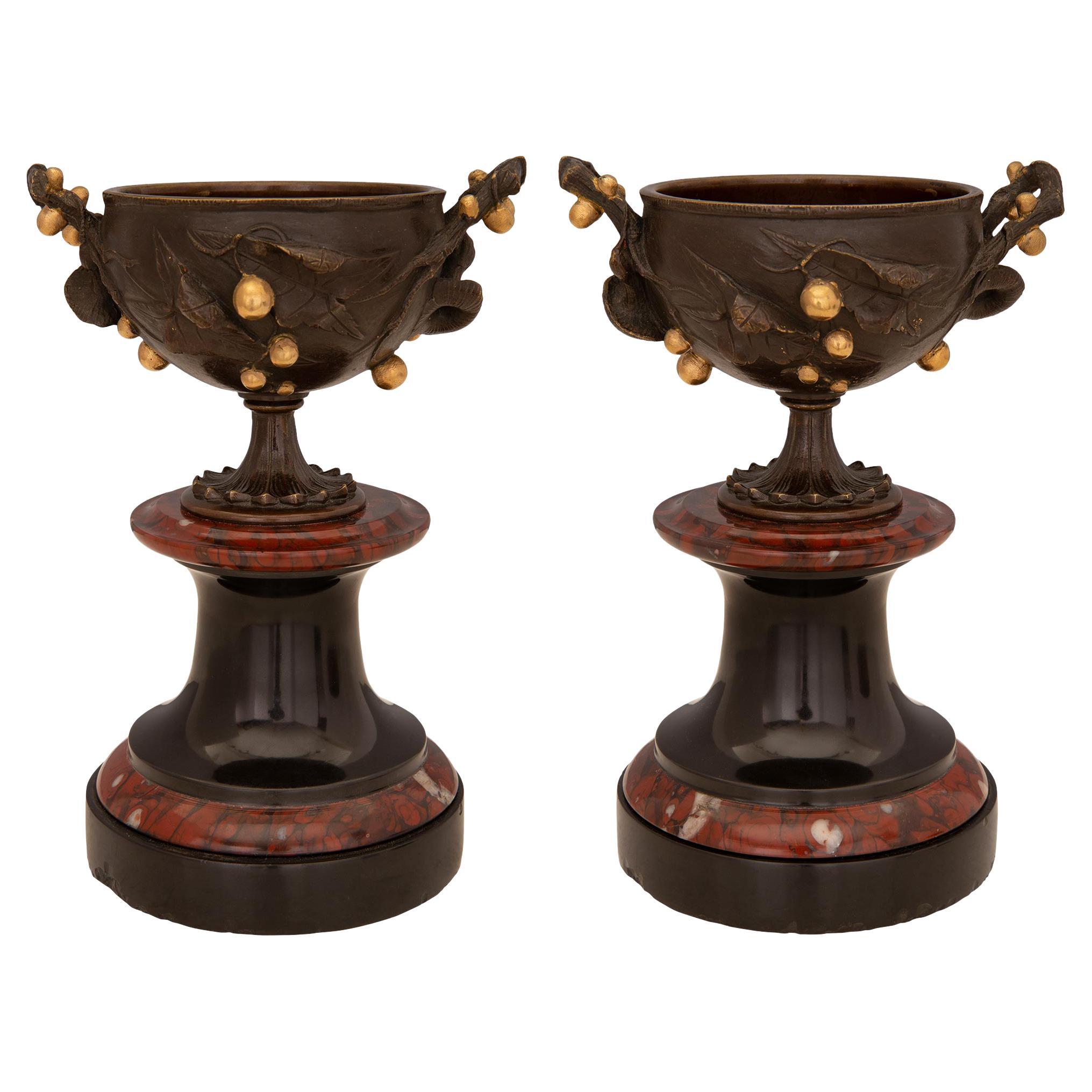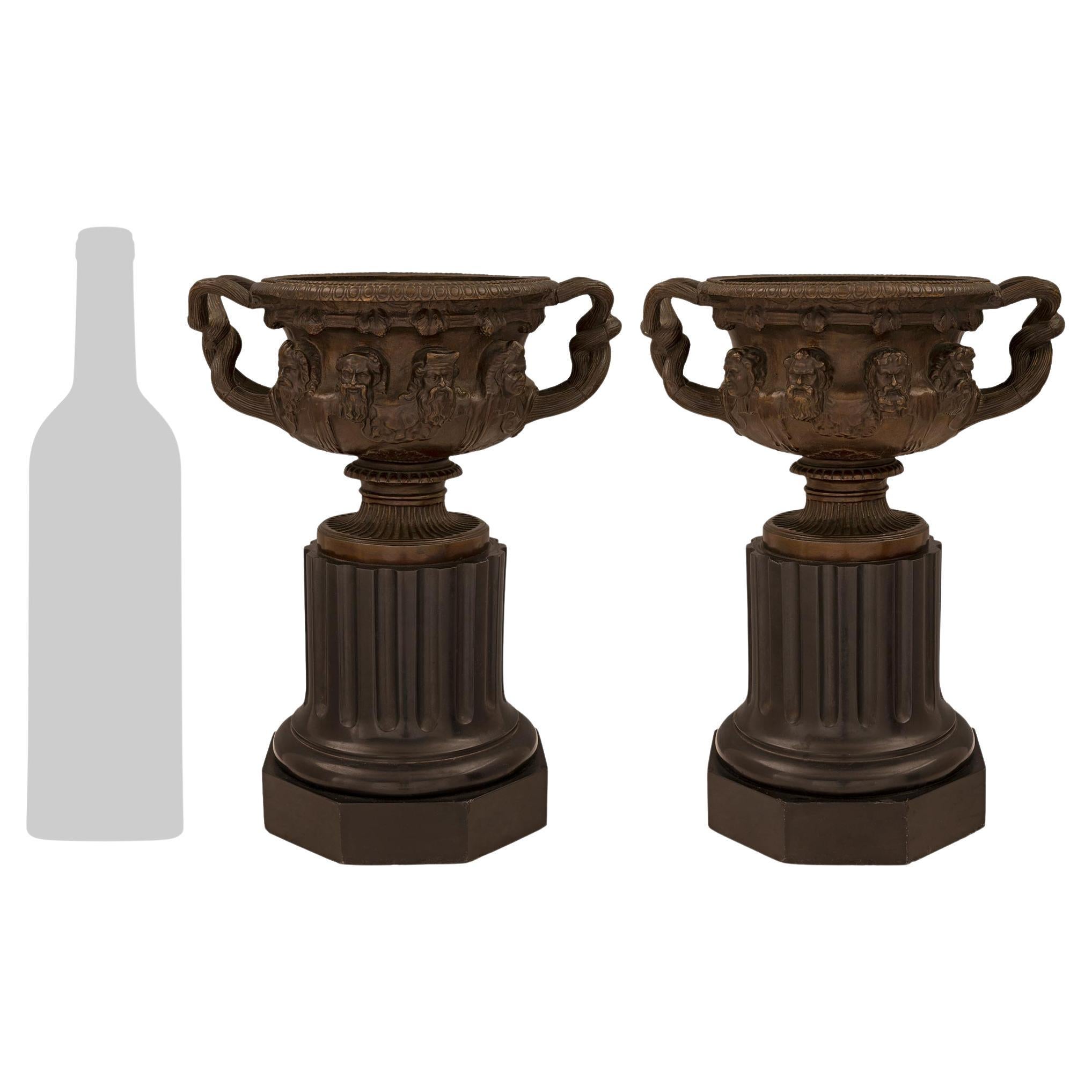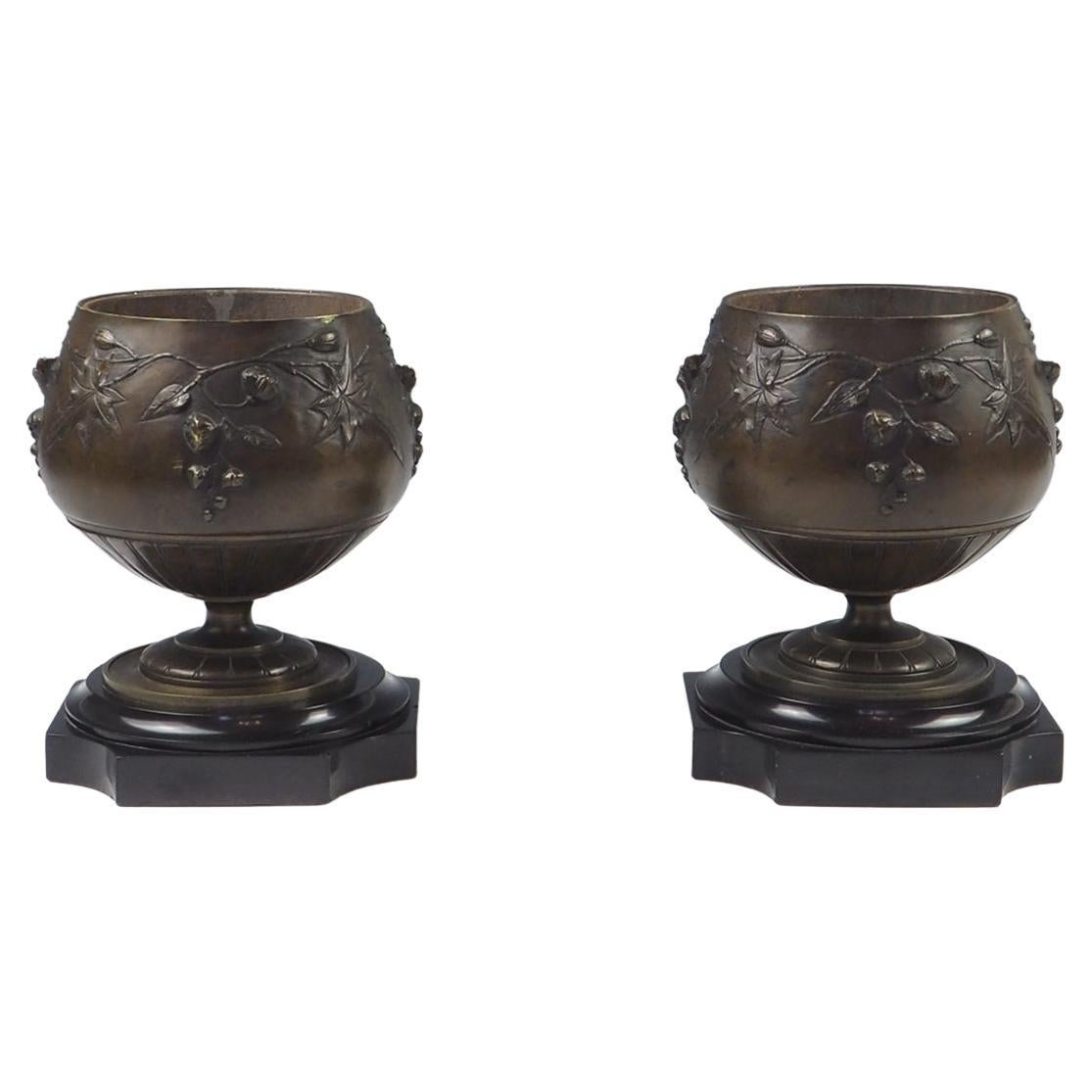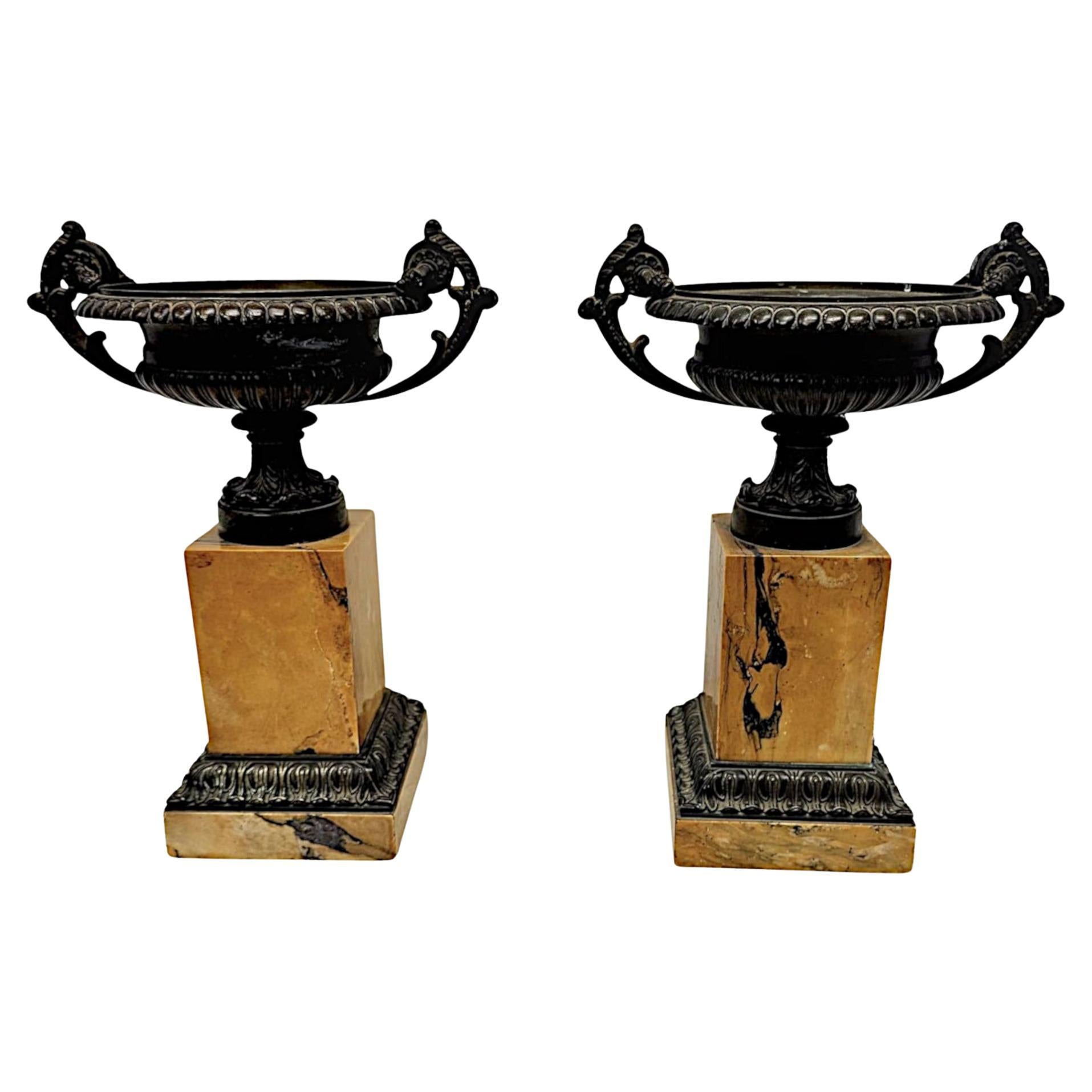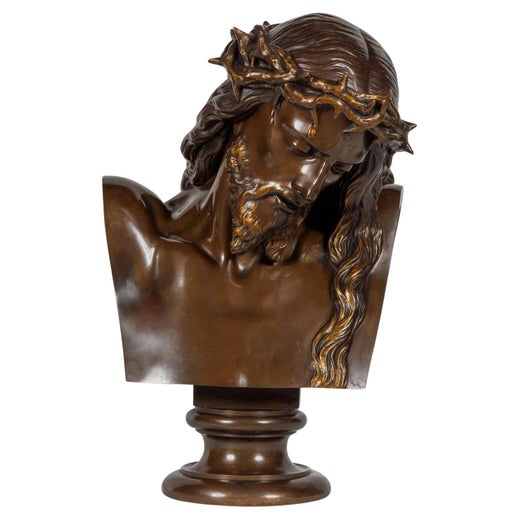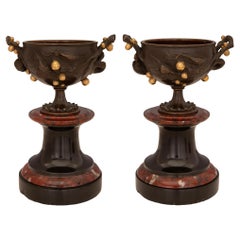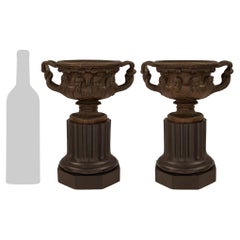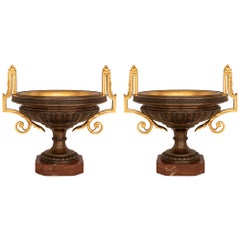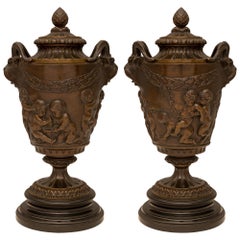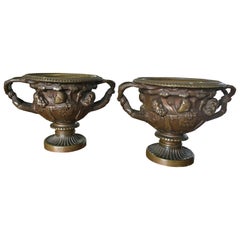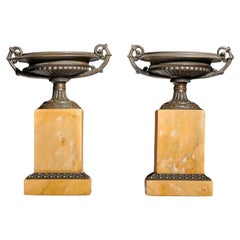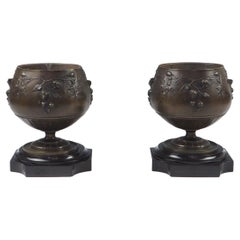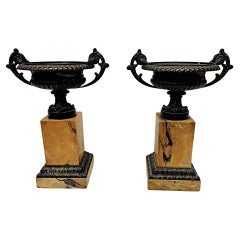Pair of French Mid-19th Century Bronze and Marble Tazzas Signed F. Barbedienne
About the Item
- Creator:Ferdinand Barbedienne (Maker)
- Dimensions:Height: 7.75 in (19.69 cm)Width: 10.75 in (27.31 cm)Depth: 7.25 in (18.42 cm)
- Sold As:Set of 2
- Materials and Techniques:
- Place of Origin:
- Period:
- Date of Manufacture:1800s
- Condition:Wear consistent with age and use.
- Seller Location:West Palm Beach, FL
- Reference Number:Seller: 71531stDibs: LU949927430302
Ferdinand Barbedienne
Founded by one-time Parisian wallpaper dealer Ferdinand Barbedienne and engineer Achille Collas, one of the most revered foundries in 19th-century France began with the invention of a revolutionary 1830s-era device that could produce proportional reproductions — large or small — of sculptures. Collas’s machine, which yielded miniature likenesses of antiquities for the interiors of homes the world over, was pivotal to the success of the F. Barbedienne Foundry. The successful firm earned prestigious awards and critical acclaim and created exquisite bronze candleholders, clocks and lamps for a range of wealthy and prominent clients.
The duo first launched their company under the name Société Collas et Barbedienne, and early on, they optimized chemical processes for pigmenting and patinating their bronze statuettes. After Collas died in 1859, Barbedienne forged on alone, and the company’s name changed to simply F. Barbedienne.
Barbedienne employed more than 300 workers at that point, and the Maison created a range of furnishings and decorative objects that featured the integration of marble and ormolu accents. However, with the onset of the Franco-Prussian War of 1870, the foundry was forced to retrofit its molds, and the production of cannons replaced sculptures, furniture and vases.
When Ferdinand Barbedienne passed away in 1891, his nephew and heir, Gustave Leblanc, took over as president, changing the name to Leblanc-Barbedienne. Leblanc expanded production into Germany, the United Kingdom and the United States, carrying on the company's legacy with monumental sculptures, and models and securing production rights for famous statues. Paul-Alexandre Dumas, an Art Nouveau maker and student of Louis Majorelle, succeeded Leblanc until the company's closing in 1952.
Barbedienne pieces had been exhibited regularly in the 19th century and were especially prevalent at Europe’s international expositions and world’s fairs, where they received numerous prizes. Today, the Musée d’Orsay in Paris holds dozens of Barbedienne works in its collection, including intricate mirrors, vases and cups created by Louis-Constant Sévin at the foundry. For more than two decades, Sévin created lamps, boxes and more at Maison Barbedienne. Working alongside award-winning chaser Désiré Attarge, Sévin designed Napoleon III-era works that greatly appealed to European nobility.
Other notable artists who collaborated with Barbedienne included Eugene Aizelin, Emmanuel Fremiet, Antonin Mercié, Emile Guillemin, Edouard Lievre, Ferdinand Levillain and Auguste Rodin.
On 1stDibs, find a collection of antique Ferdinand Barbedienne decorative objects, lighting and more.
- ShippingRetrieving quote...Shipping from: West Palm Beach, FL
- Return Policy
More From This Seller
View AllAntique 19th Century French Renaissance Urns
Marble, Bronze, Ormolu
Antique 19th Century French Neoclassical Vases
Bronze
Antique 19th Century French Neoclassical Urns
Marble, Bronze, Ormolu
Antique 19th Century French Louis XVI Urns
Marble, Bronze
Antique 19th Century French Urns
Marble, Bronze, Ormolu
Antique 19th Century French Neoclassical Urns
Bronze
You May Also Like
Antique Late 19th Century French Vases
Bronze
Antique 1830s French Urns
Siena Marble, Bronze
Antique 19th Century French Planters, Cachepots and Jardinières
Bronze
Antique 19th Century French Urns
Siena Marble, Bronze
Antique Early 19th Century English Regency Urns
Marble, Bronze
Antique 1830s French Vases
Marble, Bronze
